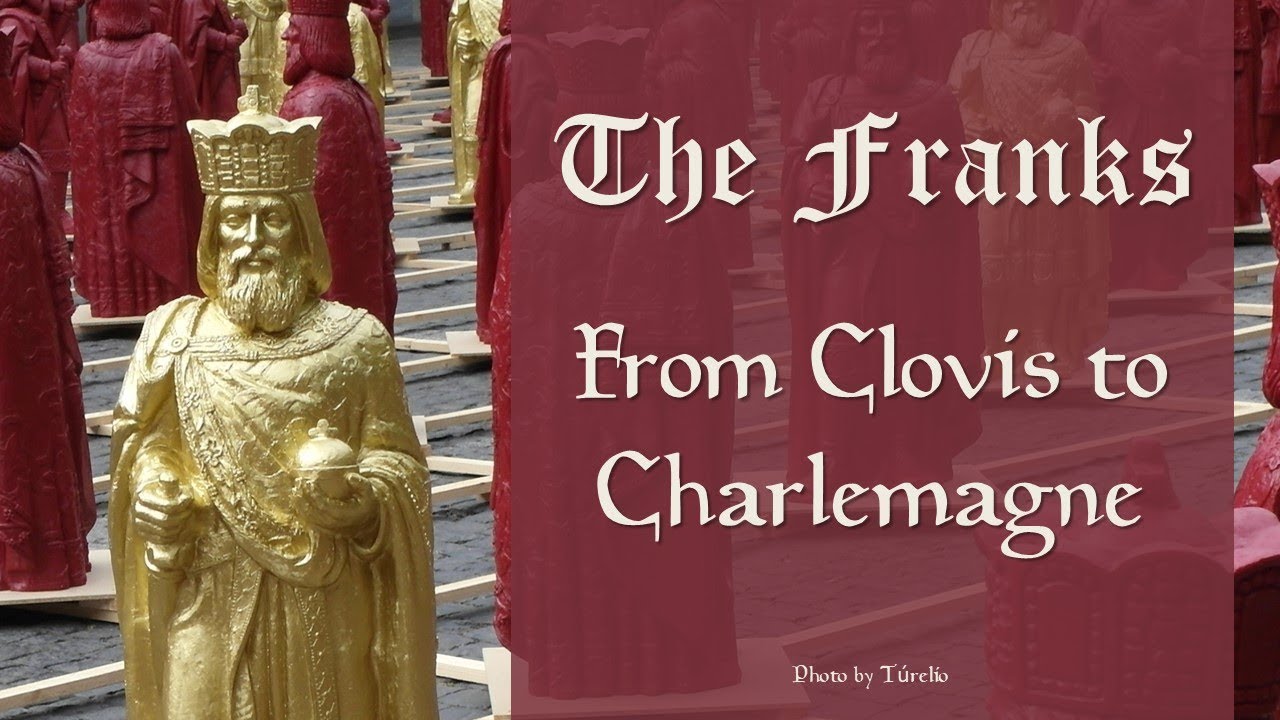The Franks engaged in no long migrations, expanding gradually west and south from their territory along the lower Rhine until eventually they were to create an empire that would include most of western Europe except for the Iberian peninsula and the British isles. Clovis (r. 481-511), a descendant of the house of Merevig or Merovech (called Merovingian), was the primary founder of Frankish power. Moving into Gaul, he successively defeated the last Roman governor (486), the Alamanni (496), and the Visigoths of Aquitaine (507). Large areas of modern France, northwest Germany, and the Low Countries were now Frankish.
The most important factor in Clovis’s success, aside from his skill as a general, was his conversion in c. 496 to Christianity as an orthodox Catholic. This gave him the instant support of the clergy of Gaul, especially of the powerful bishops of Aquitaine, who welcomed the Franks as a relief from the Arian Visigoths. Probably the greatest liability of the Franks was their habit of dividing up their kingdom among the king’s sons in every generation. In time Clovis’s sons and grandsons gained control of Burgundy and much of present-day Germany. This meant not only a periodic parceling out of territory into petty kingdoms and lordships, but constant secret intrigues and bloody rivalries among brothers and cousins and other relatives who strove to reunite the lands.
According to the sixth-century historian Gregory, bishop of Tours, King Childeric, Clovis’s grandson, married Fredegund, who stopped at nothing to achieve their ambitions. She sent her husband’s son by an earlier marriage into a plague-infested region in the hope of killing him off, and when that failed she stabbed him. Next, she sent an assassin to kill her sister-in-law, Brunnhild, and when the assassin returned unsuccessful, Fredegund had his hands and feet cut off. Brunnhild, nearly eighty, was dragged to her death by wild horses.
By the end of the seventh century, the divisive Merovingian kings became so weak that they became known as rois fainents (do-nothing kings). They delegated real power to their chief officials, the “mayors of the palace.” By the eighth century one particular family, the house of Pepin, had made this office hereditary from father to son; these were the Carolingians (named for Carolus, Latin for Charles).
One of the mayors of the palace, Charles Martel, “the Hammer” (r. 714-741), organized the Frankish nobles into a dependable cavalry and in 732 near Poitiers in western France defeated an Arab advance north from Spain. Because this was the farthest north in Europe that the Muslims ever came, the battle came to be seen as a landmark in western European history. Charles Martel’s son, Pepin III, the Short (r. 751-768), assumed the title of King of the Franks and consolidated the kingdom once again.

